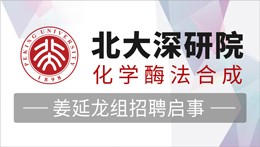Journal of Knowledge Management ( IF 6.6 ) Pub Date : 2024-07-25 , DOI: 10.1108/jkm-10-2023-1024
Antonio La Sala , Ryan Fuller , Laura Riolli , Valerio Temperini
Purpose
The aim of this research is twofold: first, to get more insights on digital maturity to face the emerging 4.0 augmented scenario by identifying artificial intelligence (AI) competencies for becoming hybrid employees and leaders; and second, to investigate digital maturity, training and development support and HR satisfaction with the organization as valuable predictors of AI competency enhancement.
Design/methodology/approach
A survey was conducted on 123 participants coming from different industries and involved in functions dealing with the ramifications of Industry 4.0 technologies. The sample has included predominately small-to-medium organizations. A quantitative analysis based on both exploratory factor analysis and multiple linear regression was used to test the research hypotheses.
Findings
Three main competency clusters emerge as facilitators of AI–human interaction, i.e. leadership, technical and cognitive. The interplay among these clusters gives rise to plastic knowledge, a kind of moldable knowledge possessed by a particular human agent, here called hybrid. Moreover, organizational digital maturity, training and development support and satisfaction with the organization were significant predictors of AI competency enhancement.
Research limitations/implications
The size of the sample, the convenience sampling method and the geographical context of analysis (i.e. California) required prudence in generalizing results.
Originality/value
Hybrids’ plastic knowledge conceptualized and operationalized in the overall quantitative analysis allows them to fill in the knowledge gaps that an AI agent-human interplay may imply, generating alternative solutions and foreseeing possible outcomes.
中文翻译:

混合体的兴起:人类与人工智能交互中的可塑性知识
目的
这项研究的目的有两个:首先,通过识别成为混合型员工和领导者的人工智能 (AI) 能力,获得更多关于数字化成熟度的见解,以应对新兴的 4.0 增强场景;其次,调查组织的数字化成熟度、培训和发展支持以及人力资源满意度,将其作为人工智能能力提升的宝贵预测因素。
设计/方法论/途径
对来自不同行业并参与处理工业 4.0 技术影响的职能的 123 名参与者进行了一项调查。样本主要包括中小型组织。基于探索性因素分析和多元线性回归的定量分析用于检验研究假设。
发现
三个主要能力群成为人工智能与人类互动的促进者,即领导力、技术和认知。这些集群之间的相互作用产生了可塑知识,这是一种由特定人类主体拥有的可塑知识,这里称为混合知识。此外,组织数字化成熟度、培训和开发支持以及对组织的满意度是人工智能能力增强的重要预测因素。
研究局限性/影响
样本的大小、方便的抽样方法和分析的地理背景(即加利福尼亚州)需要谨慎地概括结果。
原创性/价值
混合体在整体定量分析中概念化和可操作化的可塑性知识使它们能够填补人工智能代理与人类相互作用可能暗示的知识空白,产生替代解决方案并预见可能的结果。

































 京公网安备 11010802027423号
京公网安备 11010802027423号